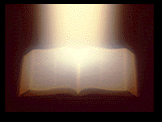Board prayer improper, judges say
But nonsectarian one may work
By Laura Maggi
Prayers recited at the opening of Tangipahoa Parish School Board meetings in recent years were unconstitutionally Christian in nature, but in the future the board may be able to begin with nonsectarian prayers, a federal appellate panel found in three opinions released Friday.
Both the American Civil Liberties Union, which filed a lawsuit challenging the board's prayers, and an attorney for the board welcomed parts of the widely divergent opinions.
But the split decision -- each of the three judges on the panel wrote a separate opinion -- also left open questions that could lead either side to appeal or to ask for a hearing before the full 5th U.S. Circuit Court of Appeals.
"We are pleased that the court found the prayers illegal and vindicated our clients in bringing our suit," said Joe Cook, executive director of the ACLU of Louisiana, which filed the lawsuit on behalf of an unnamed man who has two children in the Tangipahoa school system. The group says the prayers violated the First Amendment by trying to advance a particular religion.
Cook pointed to a section in Judge Rhesa Hawkins Barksdale's opinion that found the Christian nature of the prayers, which were offered only by Christians, essentially amounted to advocacy of Christianity. Such prayers are not allowed under a long-standing U.S. Supreme Court opinion, the judge said.
Barksdale's decision essentially represented the middle-of-the-road opinion of the three judges who considered the case, which began in 2003 and led to both a consent judgment and continued court fights in the ensuing years.
The other two judges on the panel both partially agreed and partially disagreed with Barksdale, but from sharply different perspectives.
Barksdale's 35-page decision opens the door to another kind of prayer being recited at board meetings. This is based on a Supreme Court ruling that allows legislatures to open their meetings with nonsectarian prayers that do not advocate a particular religious point of view.
That would be a drastic change from the stance taken by U.S. District Judge Ginger Berrigan, who in a previous ruling essentially had prohibited the School Board from holding any kind of prayers at its meetings.
"To that extent, it is a victory for the School Board," said Kirk Gasperecz, an attorney at Adams and Reese who represents the board.
Gasperecz said he was still studying the opinions to decide whether to ask for another hearing, although those are rarely granted. Cook also was considering asking for further consideration by the court.
The three opinions uphold the part of Berrigan's previous ruling that found the four particular prayers that were shown to the court were too sectarian. But Berrigan's injunction prohibiting all prayer was vacated, and the case was sent back to her to review the appellate decisions.
The question before the court was only whether school boards can have prayers said at their meetings. In the 2004 consent judgment, the Tangipahoa board agreed to prohibit prayer by students or officials at school-sponsored events, such as football games, or over schools' public-address systems.
Judge Carl Stewart would have upheld Berrigan's decision in its entirety, saying the Supreme Court decision allowing prayer at legislative sessions does not apply to school boards.
Judge Edith Brown Clement took the opposite tack, saying she would have struck down Berrigan's entire decision. She disagreed that the four prayers offered as examples of those at the board meetings violate the Supreme Court ruling allowing legislative prayer. Clement said she reads the high court ruling to allow the kind of prayers cited, all of which contained references to "Jesus Christ," "God" or "Lord."
In her opinion, Clement said there is no evidence the board would have prohibited non-Christian viewpoints at meetings. She also wrote that the plaintiffs failed to show the prayers essentially advocated for Christianity.
Barksdale was nominated to the 5th Circuit by former President Bush, while Clement was appointed by his son, President Bush. Stewart was appointed by President Clinton.
© 2006 The Times-Picayune. All rights reserved.
Monday, December 18, 2006
Subscribe to:
Post Comments (Atom)
Search the Bible
| You scored as Reformed Evangelical. You are a Reformed Evangelical. You take the Bible very seriously because it is God's Word. You most likely hold to TULIP and are sceptical about the possibilities of universal atonement or resistible grace. The most important thing the Church can do is make sure people hear how they can go to heaven when they die. |
What's your theological worldview?
created with QuizFarm.com





1 comment:
Who knows where to download XRumer 5.0 Palladium?
Help, please. All recommend this program to effectively advertise on the Internet, this is the best program!
Post a Comment